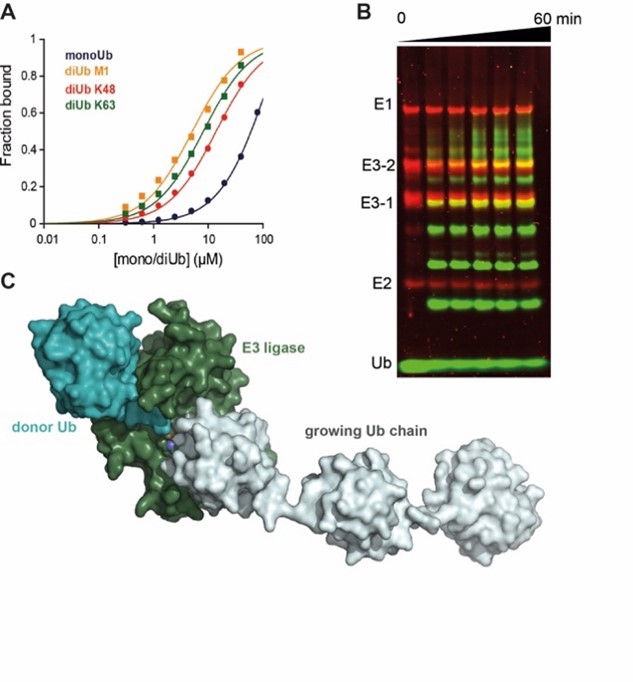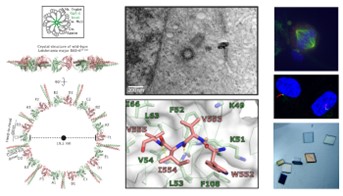Structural Biology
Structure has a direct link to function in biology. We are interested in the structure and function of living systems at the cellular to molecular level and aim to decipher their underlying molecular mechanisms. This includes understanding fundamental cellular processes and developing therapeutic avenues. As a core research unit, Structural Biology is well placed within the Centre for Molecular Cell Biology and sits at the interface between Cell Biology and Bacteriology research themes.
Investigators forming this research theme work on eukaryotic and prokaryotic systems and have a broad range of interests including DNA replication and repair, bacterial secretion systems, cell division and cytoskeleton, organelle assembly, biomaterial, RNA processing, chemical biology, drug discovery and host-pathogen interaction. These areas have a direct link towards understanding and tackling important issues such as antibiotic resistance, cancer, neurodegenerative diseases and food security that directly affects millions of people worldwide. Our researchers have expertise in traditional structural biology techniques such as X-ray crystallography, NMR, molecular dynamics and protein engineering. Our capabilities also extend into more recent technologies such as cryo-EM, to study macromolecules at near atomic detail, as well as in-situ studies using cryo-ET. Furthermore, we have embraced new methodological developments in artificial intelligence and in silico protein structure prediction to address specific structural and mechanistic questions. At QMUL, structural biology is a highly collegiate and thriving research community. With a world class faculty and excellent research environment we strive to address important fundamental biological questions that can directly impact human health and improve living conditions.

The Ubiquitin system

Structures involved in Centrosome and Centriole biology

